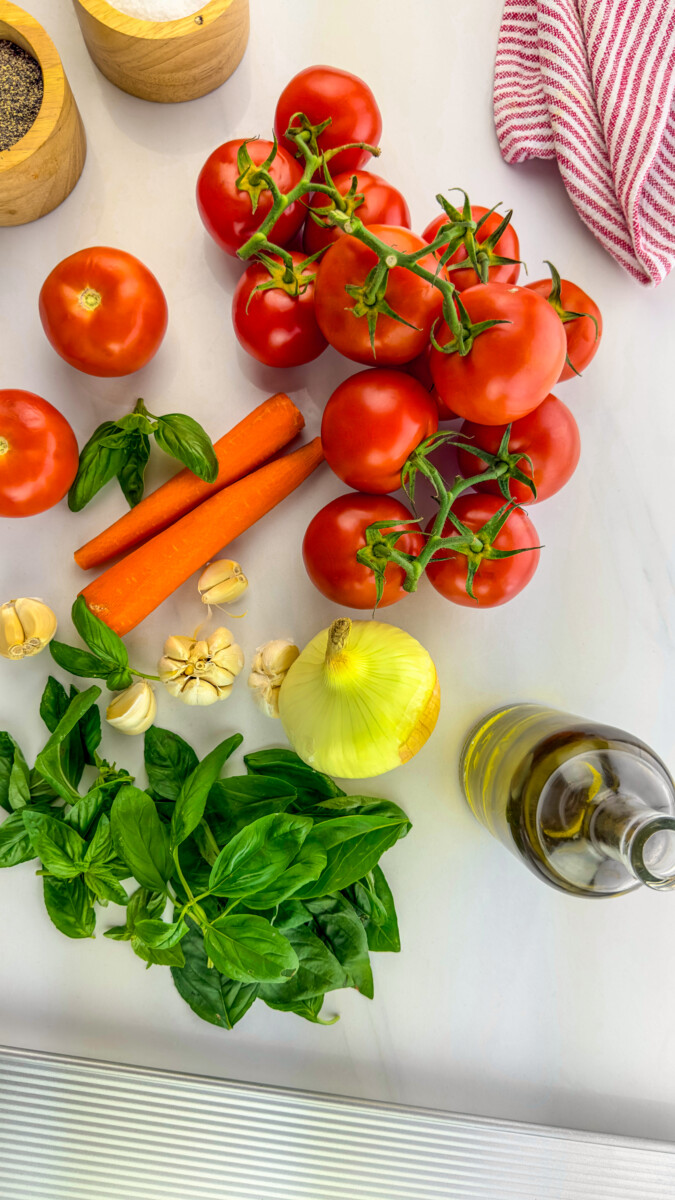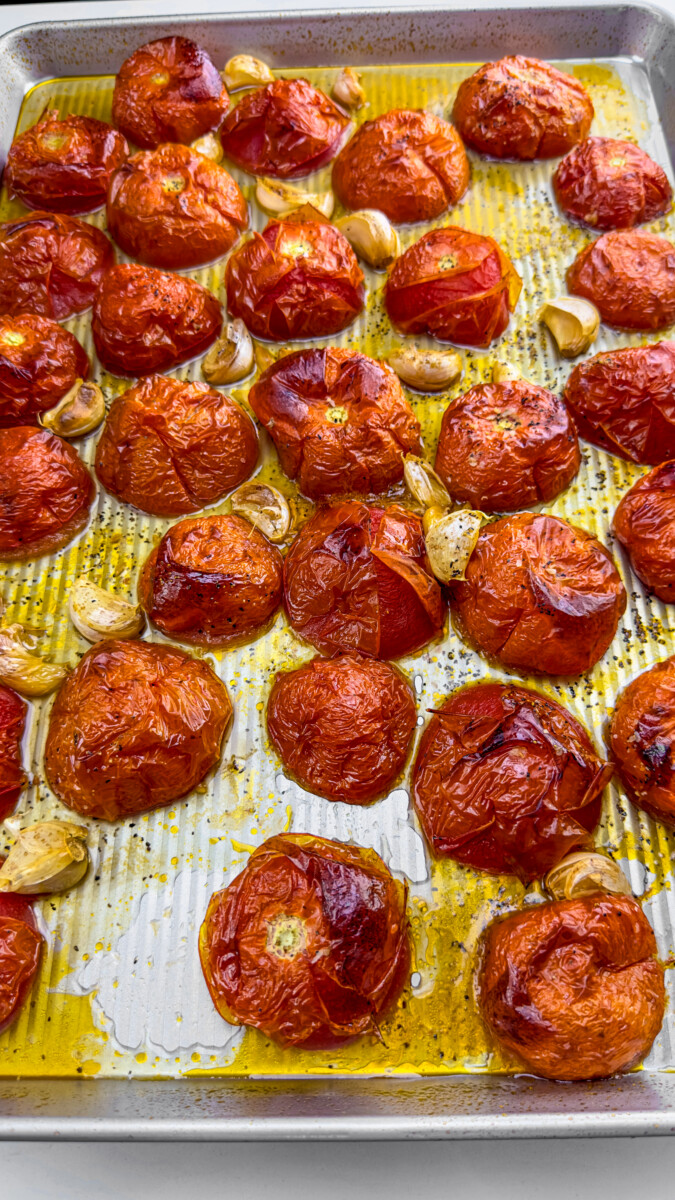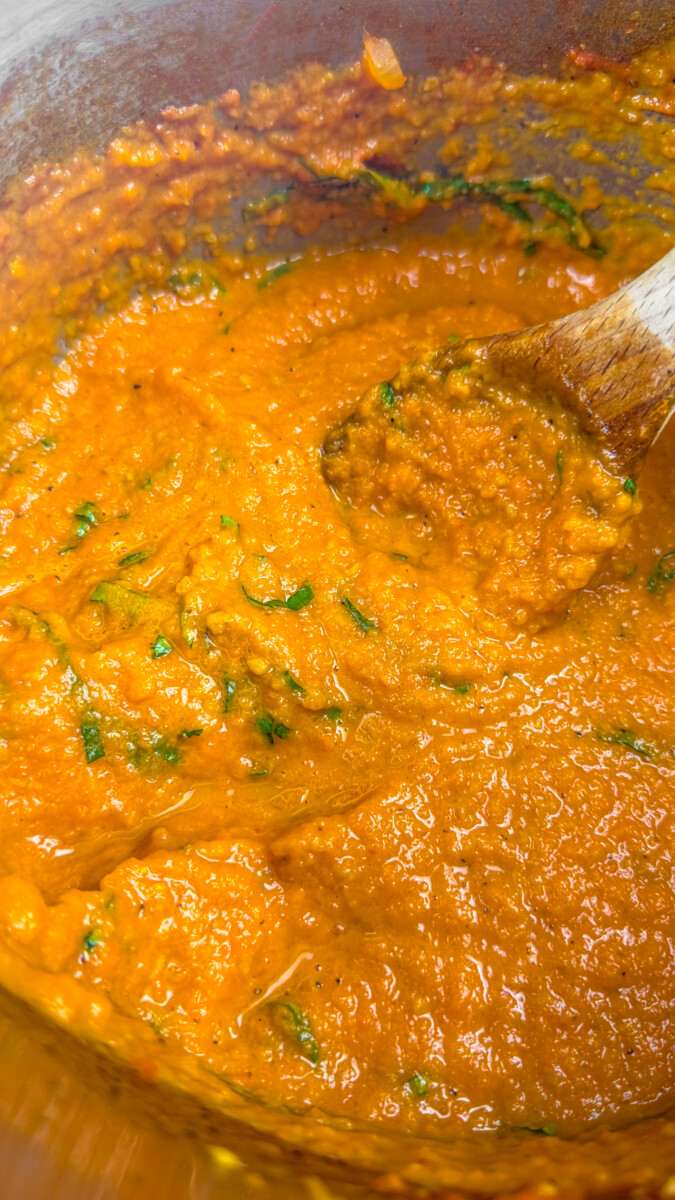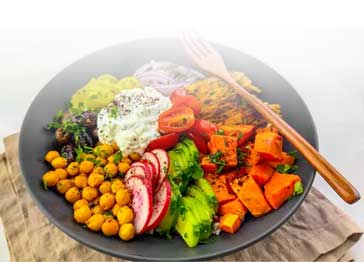Picture this: plump, juicy tomatoes and aromatic garlic sizzling in the oven, filling your kitchen with irresistible aromas. In just a few easy steps, you’ll transform these humble ingredients into a rich and flavorful spaghetti sauce.
Table of Contents
Welcome back to Rana’s Recipes, where today we’re diving into a Mediterranean culinary staple: my Roasted Garlic Tomato Sauce. This recipe holds a special place in my kitchen and heart. Growing up, tomatoes were more than just a fruit; they were part of our family’s DNA. My dad would bring home ripe tomatoes, and my mom would turn them into a versatile, low-carb spaghetti sauce, a base for various dishes from eggplant Karniyarik to classic meatball spaghetti. Fast forward to today, I’ve put my spin on this traditional sauce using homegrown tomatoes and roasted garlic. The roasting adds a smoky depth that’s incredibly addicting. And the best part? This sauce is perfect for batch cooking and freezing, so you’re never far from a delicious, home-cooked meal.
Key Ingredients Roasted Garlic Tomato Sauce
- Fresh Ripe Tomatoes: Ripe tomatoes bring a vibrant and slightly tangy note to the sauce, providing a refreshing and zesty flavor.
- Roasted Garlic: Roasted garlic infuses the sauce with a deep, earthy richness and a mild, nutty sweetness, adding complexity to the overall taste.
- Olive Oil: Olive oil contributes a smooth, silky texture to the sauce while imparting a subtle, fruity undertone that enhances its overall richness.
- Onion: Finely diced onion offers a sweet and savory flavor profile, creating a delicate balance with the acidity of the tomatoes.
- Carrots: Grated carrots provide natural sweetness, complementing the tomatoes’ tanginess and adding a hint of earthiness to the sauce.
- Tomato Paste: Tomato paste intensifies the tomato flavor, adding depth and body to the sauce.
- Sugar (Optional): Sugar, if used, enhances the sauce’s sweetness, rounding out the flavors for a well-balanced taste.
- Fresh Basil: Fresh basil leaves infuse a bright, herbaceous aroma and a touch of peppery freshness, elevating the overall flavor profile with their aromatic presence.
Each ingredient in this Roasted Garlic Tomato Sauce plays a crucial role in crafting a balanced and flavorful sauce, making it a delightful addition to various Mediterranean-inspired dishes.
Choosing Tomatoes and Perfect Seasoning
Serving Ideas
- Meatballs in Tomato Sauce: Pair this flavorful tomato sauce with meatballs for a comforting meal. You can use it in your favorite meatball recipe, adding an extra layer of depth and flavor.
- Lasagna: Our Roasted Tomato and Garlic Spaghetti Sauce is perfect for making a delicious lasagna. Try it in your favorite lasagna recipe for a unique twist on the classic.
- Braised Green Beans: Make a delightful side dish by simmering green beans in this flavorful tomato sauce. Check out our blog’s Braised Green Beans with Tomatoes and Garlic recipe.
- Stuffed Eggplants (Karniyarik): Elevate your stuffed eggplants by using this roasted tomato sauce. The smoky, rich flavor of the sauce pairs perfectly with savory stuffed eggplants.
- Tomato Soup: Transform this sauce into a delicious tomato soup by simmering it with vegetable broth and adding your favorite herbs and spices. It’s a warming and hearty soup without the need for cream. Enjoy the rich garlic and herb flavors in your soup!
Customizing Your Sauce
Feel free to experiment with your sauce to suit your taste preferences. You can enhance the flavors by adding a pinch of dried basil, oregano, thyme, or your favorite Italian herbs.
Consider incorporating proteins like ground beef, chicken, or lamb for a heartier sauce. Simply brown them and add them to the sauce for added richness.
If you desire a creamier texture, try stirring in some cream or a dollop of mascarpone cheese. Make it your own, and enjoy your personalized version of this delicious sauce.
Leftover Spaghetti Sauce Ideas
Wondering what to do with leftover spaghetti sauce? Get creative! You can use it as a tasty pizza topping or incorporate it into a hearty chili with beans and vegetables. Another option is to turn it into a delightful baked dish by layering it with cooked pasta and cheese, then baking it until it’s bubbly and golden. This creates a satisfying pasta casserole. There are endless possibilities for repurposing leftover spaghetti sauce into new, flavorful dishes. If you’d like more leftover spaghetti sauce recipes, feel free to ask in the comments!
Preparation


Cut the tomatoes in half and arrange them cut-side up on a baking sheet. Scatter the garlic cloves around the tomatoes.
Drizzle with olive oil and sprinkle with salt and pepper—roast in the oven for about 35 minutes or until the tomatoes are soft.
Then turn the oven on, and broil on low until charred for ten more minutes.




Add the Tomato Paste and Roasted Tomatoes: Stir in the tomato paste until well combined with the onions and carrots. Then add the roasted tomatoes and garlic, breaking them up with your spoon.


Finally, add the fresh basil and simmer for an additional 5 minutes.

Ingredients:
Adjust Servings
| 15 fresh ripe tomatoes (approximately 4 ½ LB) | |
| 2 heads of garlic, separated but not peeled (about 20 cloves) | |
| 4 tablespoons olive oil | |
| Salt and pepper to taste | |
| 1 large onion, finely diced | |
| 2 carrots, finely grated | |
| 2 tablespoons tomato paste | |
| 1 tablespoon sugar to taste (optional) | |
| 1 bunch of fresh basil |
Preparation
Recipe Tips & Suggestions
How Long Can Spaghetti Sauce Last in the Fridge?
Nutrition Information
The information shown is an estimate provided by an online nutrition calculator. It should should not be considered a substitute for a professional nutritionist's advice.
See our full nutrition disclosure here.








I would love to hear your experience!
This homemade spaghetti sauce is not just a recipe; it’s a celebration of fresh ingredients, family traditions, and the joy of cooking. Have you tried this recipe? Let me know in the comments below how you enjoyed this delightful culinary journey to the Mediterranean.